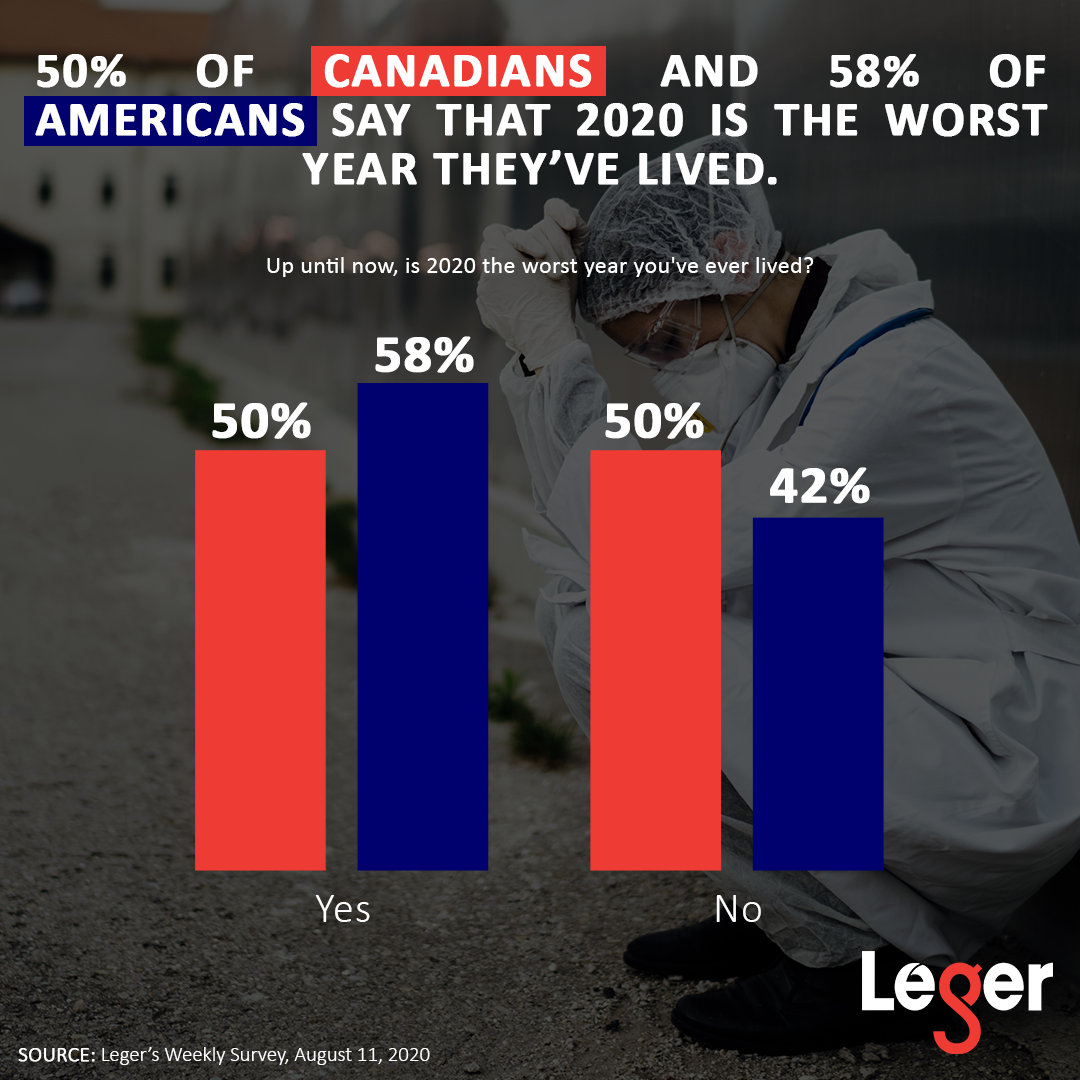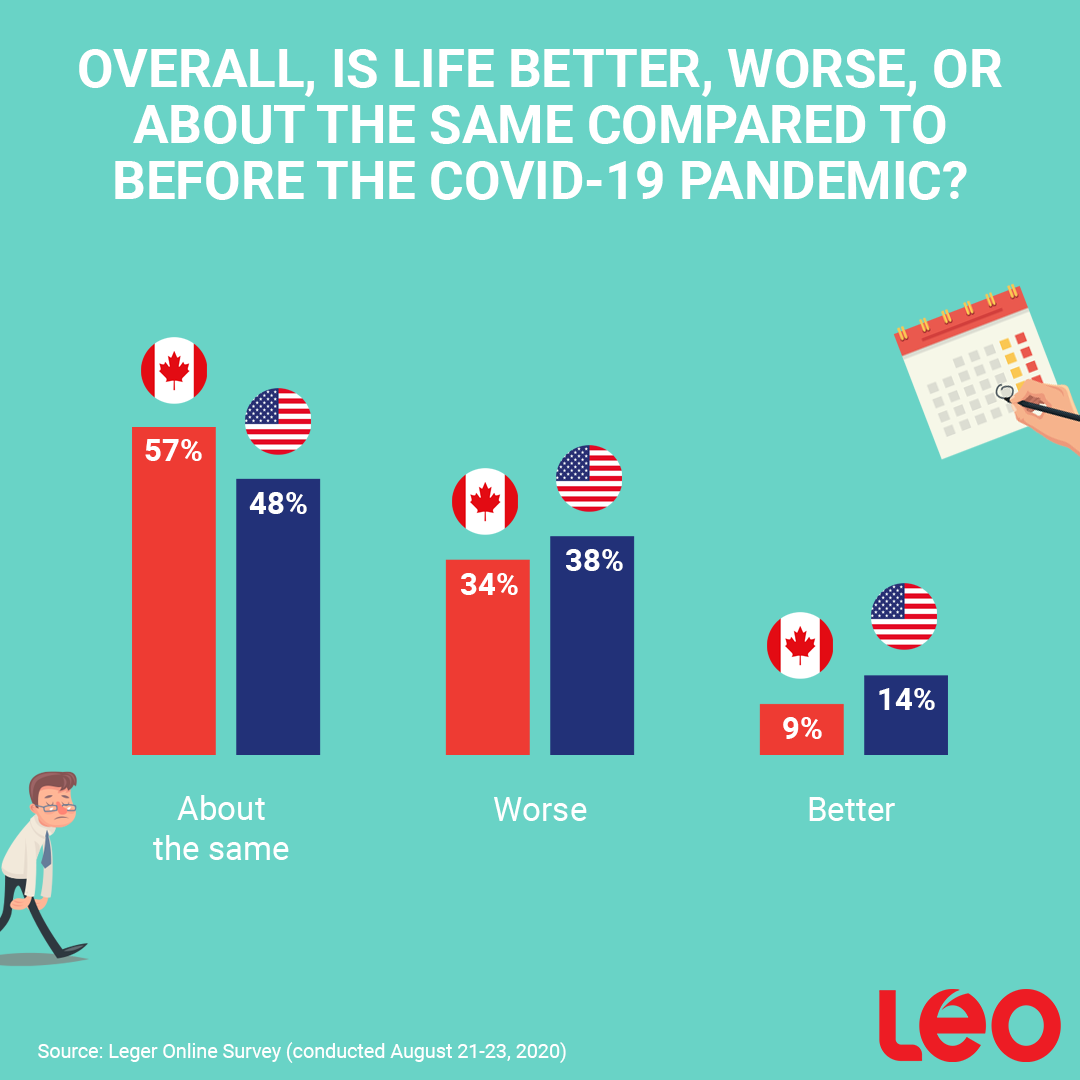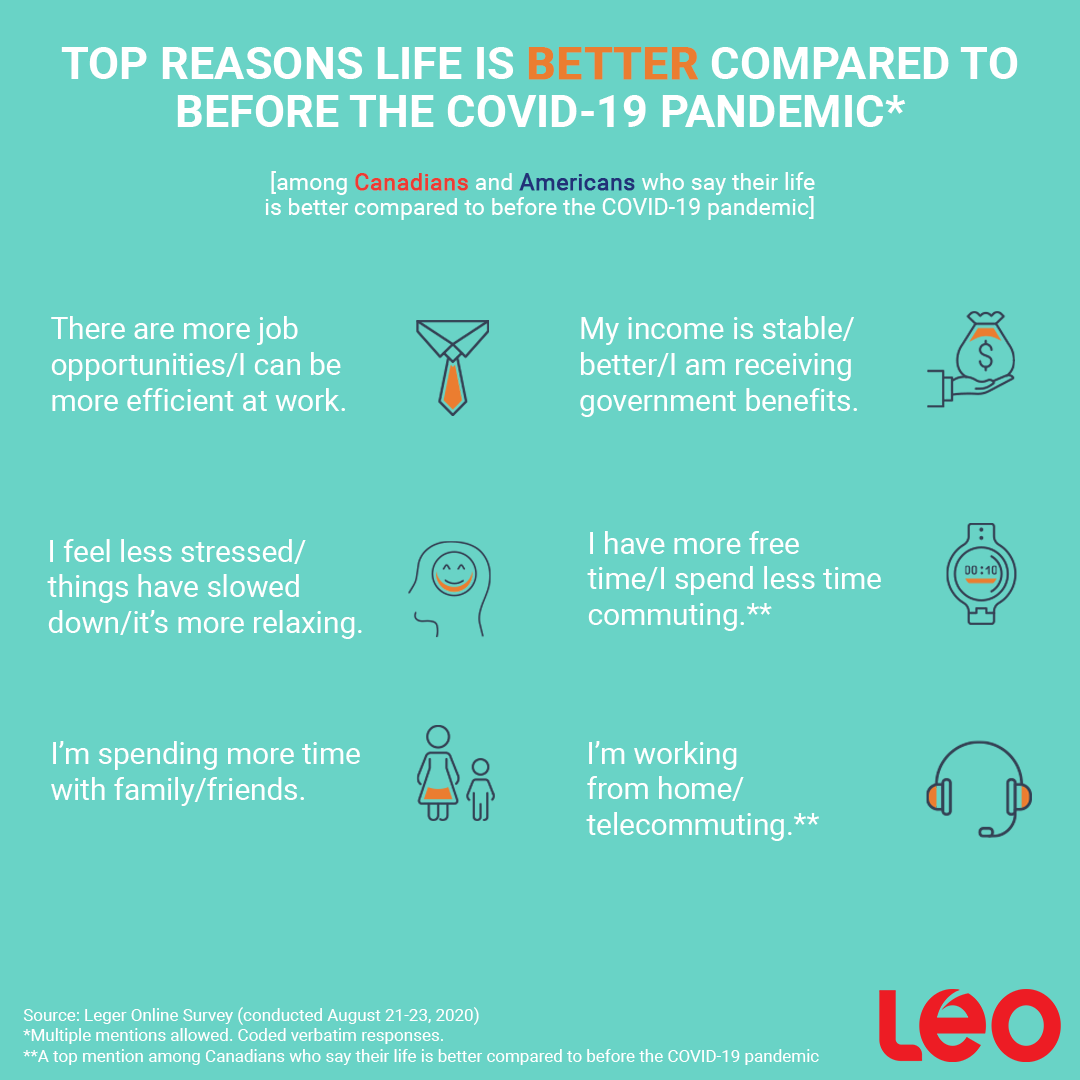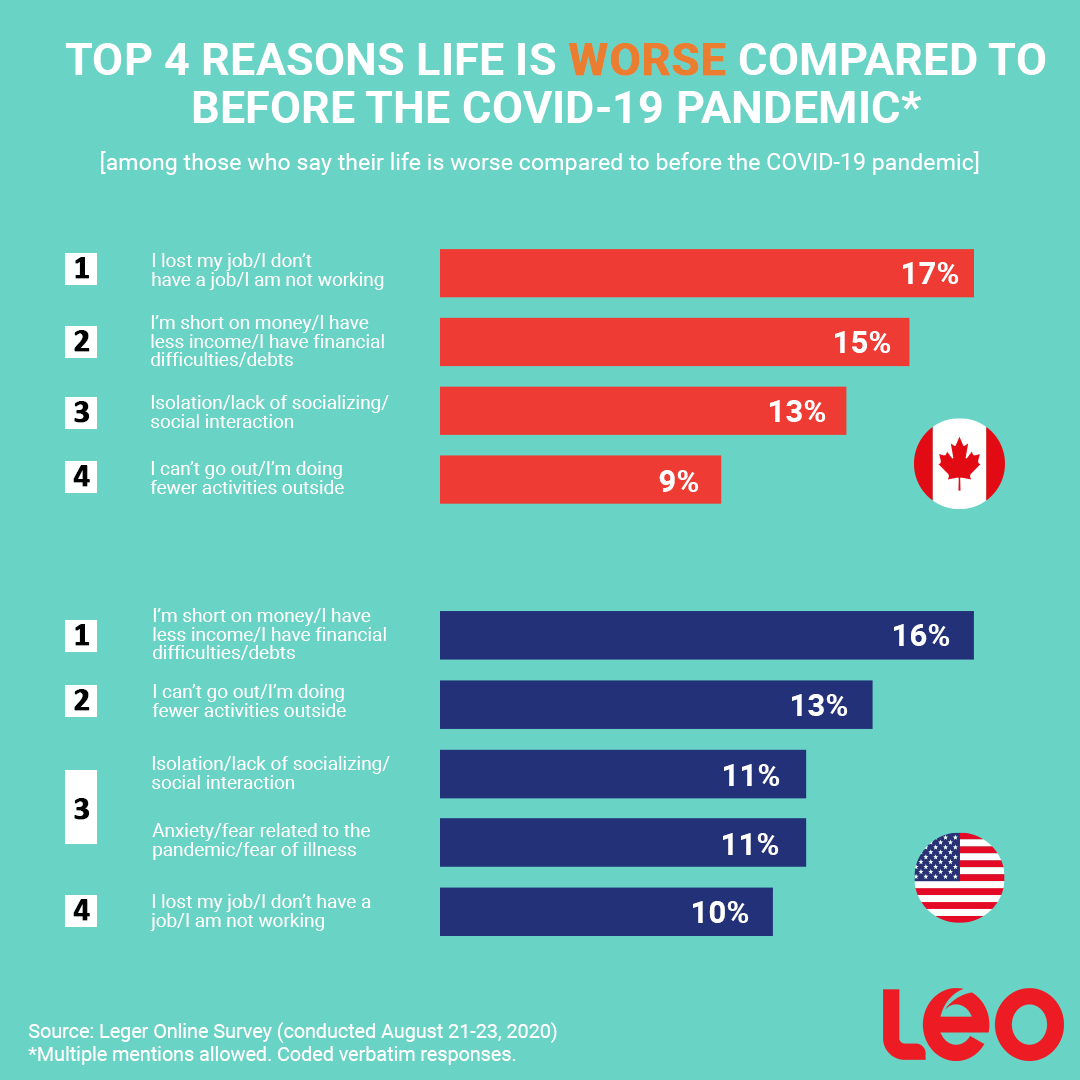With all that has happened in 2020, it’s no wonder that some people are declaring it the worst year ever. When we asked Canadians and Americans to tell us whether 2020 is the worst year they’ve ever lived through until now, 50% of Canadians and 58% of Americans said that it is.

The COVID-19 pandemic has quickly and fundamentally changed the way we live our lives, for better or for worse.
Approximately seven months into the pandemic, it’s difficult to remember being able to leave our home without a mask, go shopping without disinfecting our hands first, work near others, or simply to eat a meal at a crowded restaurant.
Tragically, many Canadians and Americans have gotten very sick due to COVID-19, and over 9,000 Canadians and nearly 180,000 Americans have died as of August 27, 2020.1 In addition, the world economy is experiencing the “deepest recession since World War Two,” according to the World Bank.2
Despite the awful impacts of this pandemic, however, positive stories are also emerging. Some people are reporting that they love working from home, that they’ve been able to take time to do things they were never able to before, or that they’ve been able to slow their lives down and re-evaluate what really matters to them. On a broader scale, there is a movement to reconsider how we protect the environment, in order to “build back better from the pandemic.”3
With this in mind, we were curious about whether Canadians and Americans feel that their life is currently better, worse, or about the same compared to before the pandemic.
The greatest proportion of Canadians (57%) and Americans (48%) say that their life is currently about the same, compared to before the pandemic.
One-third (34%) of Canadians and nearly two-in-five (38%) Americans say that their life is worse, while about one-in-ten (9%) Canadians and 14% of Americans say it is better.

What are the main reasons that life is better compared to before the pandemic?
We asked those who said their life is better compared to before the pandemic why they feel this way.
Among them, the top reasons life is better include:
- They are spending more time with family/friends.
- They feel less stressed/things have slowed down/they feel more relaxed.
- Their income is stable or better, and/or they are receiving government benefits.
- They have more job opportunities, and/or they can be more efficient at work.
- They have more free time/spend less time commuting.
- They are working from home/telecommuting.

What are the main reasons that life is worse compared to before the pandemic?
We also asked those who said their life is worse compared to before the pandemic why they feel this way.
Among Canadians who said their lives are worse, the top reasons why include:
- They lost their job/they don’t have a job/they are not working (17%)
- They are short on money/they have less income/they have financial difficulties/debts (15%)
- Isolation/lack of socializing/social interaction (13%)
- They can’t go out/they are doing fewer activities outside (9%)
Among Americans who said their lives are worse, the reasons why are quite similar to Canadians:
- They are short on money/they have less income/they have financial difficulties/debts (16%)
- They can’t go outside/they are doing fewer activities outside (13%)
- Isolation/lack of socializing/social interaction (11%)
- Anxiety/fear related to the pandemic/fear of illness (11%)
- They lost their job/they don’t have a job/they are not working (10%)

Based on these results, Canadians’ and Americans’ ability to interact/socialize with the people they enjoy spending time with, whether they can participate in the activities they enjoy, their overall emotional state, and their employment situation/job stability/income impact whether they feel life is better or worse compared to before the pandemic.
SURVEY METHODOLOGY
This web survey was conducted from August 21-23, 2020, with 1,516 Canadians and 1,003 Americans, 18 years of age or older, randomly recruited from LEO’s online panel.
Using 2016 Census reference variables, the Canadian data were weighted by gender, age, mother tongue, region, education level and presence of children in the household in order to ensure a representative sample of the population. Using 2010 U.S. Census reference variables, the American data were weighted by gender, age, region, race/ethnicity and household size in order to render a representative sample of the general population.
IS YOUR LIFE BETTER, ABOUT THE SAME AS, OR WORSE THAN BEFORE THE PANDEMIC? WHY?
SHARE YOUR PERSPECTIVE WITH OTHER LEO MEMBERS IN THE COMMENTS BELOW!
Sources:
1https://coronavirus.jhu.edu/map.html
2https://news.un.org/en/story/2020/06/1065902
This post is also available in: Français


